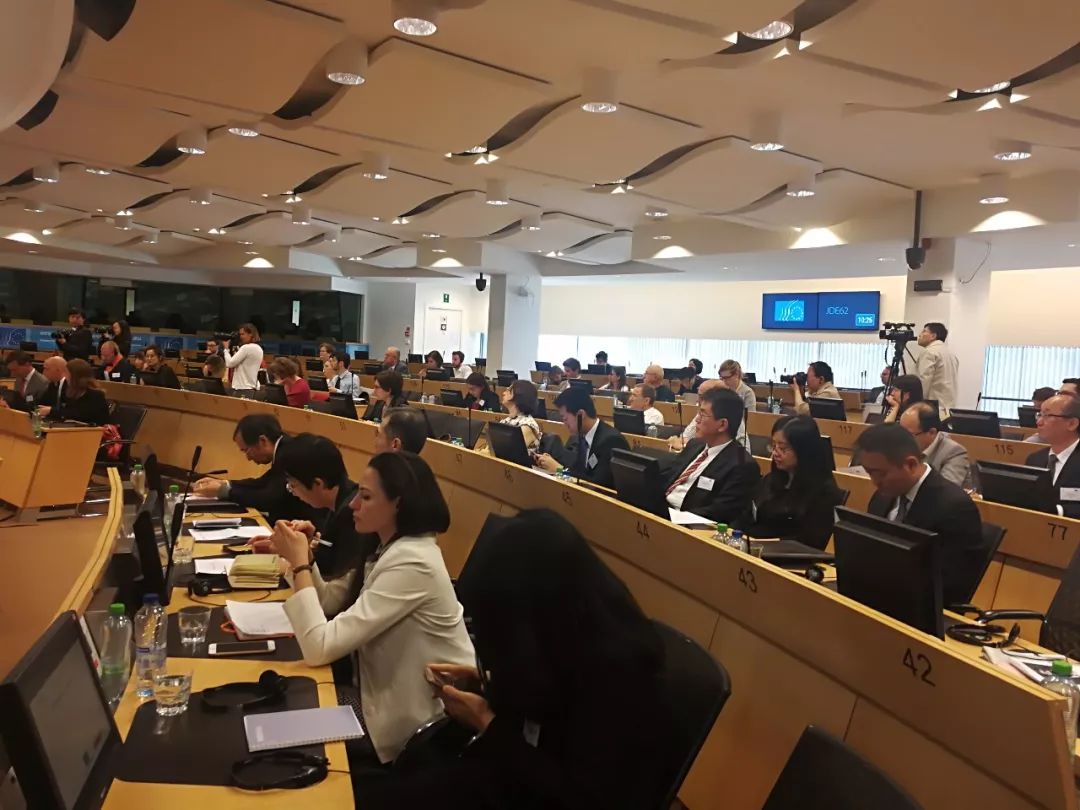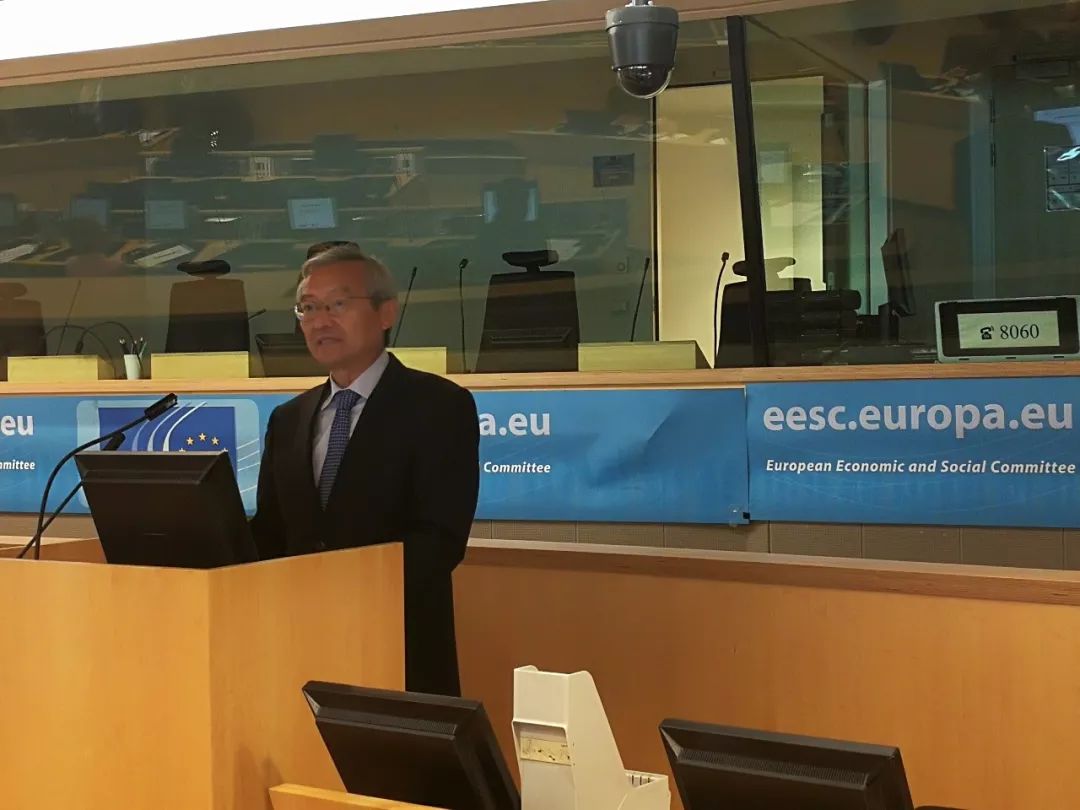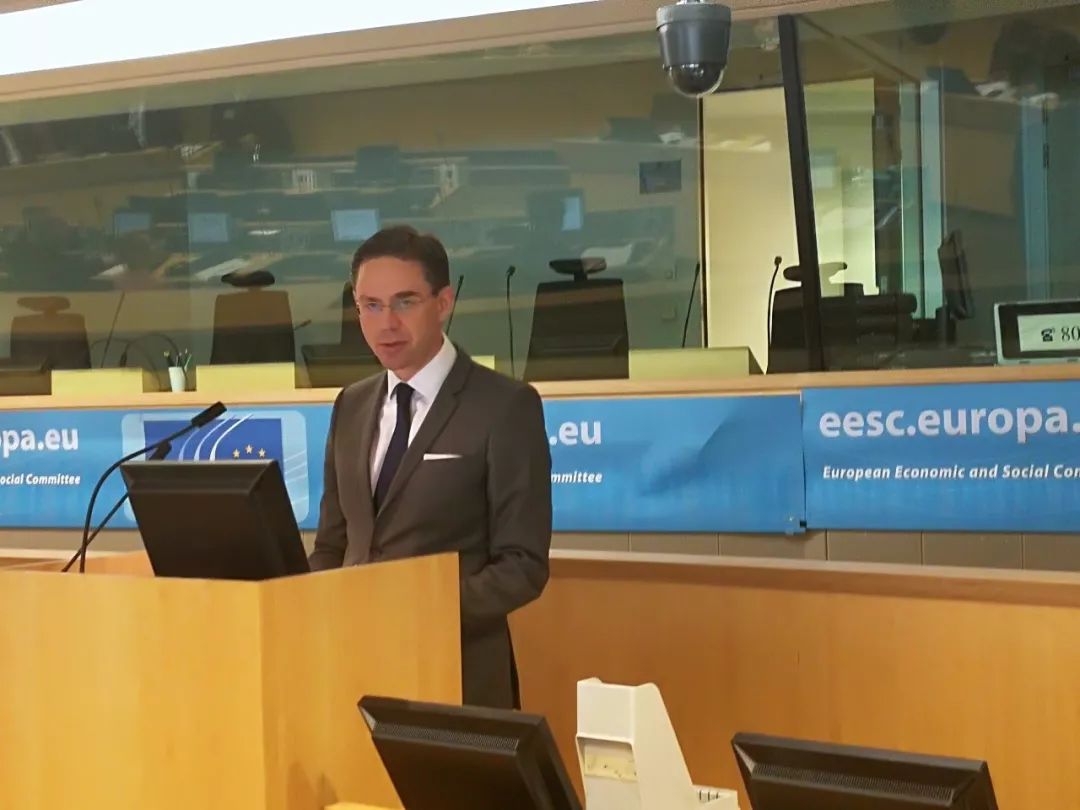On May 7th, 2018, the European Union-China Research Center of the College of Europe and the European Economic and Social Committee jointly held an international conference themed on “EU and China’s Sustainable Development Goals: Can We Be Allies?” The conference focused on the prospect of all-round cooperation between the EU and China through two high-level keynote speeches and two symposiums. Taihe Institute participated in the conference as a joint preparatory organization.

Ms. Tellervo Kyla-Harakka-Ruonala, vice chairperson of the European Economic and Social Committee Sustainable Development Observation Group, delivered a welcoming speech and expressed her ardent expectations for the EU-China cooperation.
Mr. ZHANG Ming, China’s ambassador to the EU, pointed out that sustainable development is an inevitable choice under the current global situation. China and Europe should strengthen cooperation in four areas: the first is to reinforce global cooperation; the second is to safeguard the rule-based multilateral economic system and oppose unilateralism and protectionism; the third is to positively explore new areas of possible bilateral cooperation; the fourth is to promote further coordination between China and the EU’s respective strategies and harmonious coexistence between the green “Belt and Road” Initiative and the EU’s own sustainable development agenda.

Mr. Jyrki Katainen, vice president of the European Commission, pointed out that the EU and China are core participants and partners in global affairs. The two sides should not only combine the sustainable development goals with domestic policies, but also work together to promote the sustainable development, infrastructure construction and connectivity in the third world countries.

Mr. Pierre Amilhat, director of the Department of Regional Affairs in Asia, Central Asia, the Middle East and the Pacific of the European Commission Development Assistance and Cooperation General Department, stressed that the “EU Foreign Investment Plan” aims at promoting inclusive growth, employment and sustainable development in the surrounding regions of Africa and the EU. The “China-EU Comprehensive Investment Agreement”, which is currently in the middle of negotiation, is a strong driving force in the sustainable development and China’s “Belt and Road” construction. If the negotiation can yield fruitful results, it will certainly bring stability and clear prospects to the EU and China in business. It should be noted that the incompatibility between environmental sustainable development and trade interests will lead to numerous challenges, and we need to be especially vigilant against the conflicts triggered by protectionism which claims itself to be sustainable development.
Professor MEN Jing, senior researcher of Taihe Institute and director of the EU International Relations and Foreign Policies Research Center of the College of Europe, hosted the parallel session on the theme of “Climate Change and Energy Sustainability: Can the EU and China Establish Partnership after the Paris Agreement”. Experts participating in the forum believed that the Paris Agreement is of great political significance, and the rise of sustainable technology in global market will replace all outdated production models eventually. To better implement the Paris Agreement, a compromise must be made between trade policies and sustainability. At present, there are four major problems in the field of energy, namely energy shortage, environmental pollution, difficulties in power supply and the development of renewable energy. China has developed many long-distance transmission lines of renewable energy, and has greatly reduced the pollution level in clean energy deficient areas in the meantime. The EU should cooperate with China wholeheartedly to promote global sustainable development.
Taihe Institute will continue to expand international cooperation, actively explore issues related to sustainable development, and provide sound suggestions.
—————————————————————
Taihe Institute. Focus on the need of times.
Should you have any questions, please contact us at public@taiheglobal.org